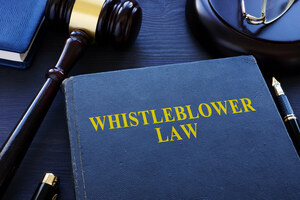 When last we left off, Academy Mortgage sought summary judgment against the whistleblower. That would have ended the long-running lawsuit.
When last we left off, Academy Mortgage sought summary judgment against the whistleblower. That would have ended the long-running lawsuit.Thrower has now filed her own motion for partial summary judgment. She does so on two grounds:
- First, she argues that Academy Mortgage has failed to show evidence that the FHA or HUD knew the loans were shaky and intentionally waived its right sue Academy Mortgage; and
- Second, that her claims are not time-barred, as Academy Mortgage claims.
The complicated role of a whistleblower under the FCA
The FCA provides that anyone who knowingly submits a false claim to the government may be liable for three times the government’s damages plus a penalty of that is now linked to inflation. In addition to allowing the federal government to pursue perpetrators of fraud on its own, the law also allows private citizens to file suits on behalf of the government (called “qui tam” lawsuits) against those who have defrauded the government. This is where whistleblowers come into the story.
This qui tam feature essentially “crowd-sources” the investigative and enforcement roles of various federal regulators. It makes sense because people who work for federal contractors are often in the best position to know about fraudulent practices.
Whistleblowers may receive a portion of the government’s recovery. When the government declines to pursue a whistleblower claim brought under the FCA, the individual whistleblower may pursue the claim on his or her own.
Into a hall of mirrors
This case has been strange from the start. Rather than simply declining to intervene in the lawsuit, as it was entitled to do under the FCA, the government sought to dismiss it. The government argues that pursuing the case would drain its resources. Nonetheless, it continues as the nominal plaintiff – hence the caption “U.S. v. Academy Mortgage,” rather than “Thrower v. Academy Mortgage.”
Thrower’s legal predicament is even stranger. She is not pursuing the lawsuit on her own but continues to act on behalf of the government as a qui tam plaintiff. This is even after the U.S., as the official plaintiff, has sought to have the lawsuit dismissed.
How does this make any sense?
It is difficult to imagine that the modest recovery Thrower may eventually receive from a whistleblower lawsuit would justify six and counting years of litigation.
Another way to make sense of this situation is to consider that the money that the government may ultimately have to spend to bail out bad loans is not its money. The money belongs to American taxpayers, who have entrusted this government agency to carry out a public policy encouraging home ownership.
This is a widely-embraced goal. But it’s not quite the same as turning a blind eye to shady lenders, even if some marginal borrowers do actually manage to make good.
The estoppel argument
The legal term “estoppel” prevents litigants from arguing something or asserting a right that contradicts what they previously said or agreed to by law. Academy Mortgage argues that Thrower, acting on behalf of the government, asserts something that is contradictory to what the government, either actively or passively, permitted to happen.
In her latest motion for partial summary judgment, Thrower argues that Academy Mortgage has simply failed to show that the government knew the loans were suspect. FHA processes a lot of paperwork, and there is no indication that each individual mortgage application is reviewed. If the agency did not know the loans were sketchy, then it could not intentionally waive its right to sue the lender.
Has the time run out?
READ MORE WHISTLEBLOWER LEGAL NEWS
“[three] years after the United States official charged with the responsibility to act knew or should have known of the relevant facts, but not more than ten years after the violation.”
The United States official mentioned in the statute would be the Attorney General of the United States. Thrower argues, as she did in response to Academy’s estoppel claim, that there is no indication that the government knew of Academy’s practice of green-lighting unqualified borrowers.
What’s next for the long-running whistleblower lawsuit? It is hard to tell, of course. But it’s a near certainty that the litigation will continue for the foreseeable future.
